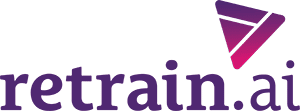For businesses competing in today’s fast-paced landscape, leading the market means having the right people with the right skills in the right roles. Generative AI has risen to the top of this conversation as a way to more efficiently and accurately reach that goal.
But what is Generative AI, and how can it revolutionize talent intelligence? If you’re a CHRO, technical innovation leader, or workforce strategist looking to harness the power of AI for HR, here’s what you need to know.
What is Generative AI?
Generative AI is a subset of artificial intelligence that focuses on creating new, original content, rather than simply analyzing or processing existing data. Using vast datasets to learn patterns, relationships, and styles, generative AI technology is able to generate human-like content, whether it’s text, images, or even music.
Generative AI in Hiring
Finding the right talent has always been a critical challenge for HR professionals. When it comes to sourcing, screening and securing the right candidates with the skills needed for business success, generative AI can assist in multiple ways:
- Skills Extraction and Matching: By analyzing resumes and job descriptions with unprecedented speed and accuracy, Generative AI solutions can quickly identify candidates who best match the required skills and qualifications for an open role. This means talent acquisition specialists can cut time and cost to hire by zeroing in on the right people to move through the hiring process.
- Candidate Engagement: Chatbots powered by Generative AI can interact with candidates, answer questions, and schedule interviews, ensuring a seamless and efficient recruitment process while freeing HR leaders up to focus on more interpersonal elements of the hiring process.
- Diversity and Inclusion: Generative AI can support a fair and inclusive hiring process by focusing solely on qualifications and skills, eliminating demographic and other information that can introduce unintended bias.
Generative AI and Internal Mobility
Fostering internal mobility is essential for employee growth and retention. In fact, it’s been shown that employees with a clear view toward future opportunities are more likely to stay with an organization, making proactive upskilling channels a business imperative. Generative AI can assist by:
- Skills Mapping: Generative AI can help identify employees’ skills, capabilities and interests in order to more accurately suggest potential career paths within the organization.
- Learning Recommendations: When opportunities are identified in the form of open roles, gigs or projects, Generative AI can produce relevant upskilling pathways to help them acquire the new skills required to pursue them.
- Succession Planning: By analyzing employee data around skills, capabilities and aspirations, Generative AI can aid in identifying high-potential employees and preparing them for leadership positions.
Generative AI and Skills-Based Organizations
The traditional job-centric approach to workforce planning is quickly becoming outdated, as more companies shift to a skills-focused model. Generative AI supports this transition through:
- Skills Gap Analysis: By powering a data-driven skills architecture, Generative AI can analyze the skills already present in a workforce, those needed in the future, and how to bridge the gap between the two with employee upskilling or reskilling recommendations.
- Skills Tagging: Generative AI can automatically tag skills to employees based on their experiences and achievements, creating a comprehensive, continuously updated skills inventory.
- Adaptive Training: Personalized training plans can be fueled by Generative AI, ensuring employees are continually developing the skills necessary to excel in their current and future roles.
Considerations for CHROs
While Generative AI holds immense potential to elevate HR functions, there are some critical considerations for CHROs when evaluating AI platforms for their HR technology stack:
- Data Privacy: Ensure that data privacy regulations are followed rigorously, including the safeguarding of sensitive employee and candidate information.
- Ethical Use: Develop Responsible AI guidelines to comply with regulations and prevent bias, discrimination, or misuse of technology in hiring decisions.
- Integration: Ensure the AI system can seamlessly integrate with your existing HR software to maximize its efficiency and avoid the delays of a rip-and-replace solution.
- Training and Support: Invest in staff training to help HR teams understand and effectively use Generative AI tools as well as welcome user feedback.
- Continuous Improvement: Keep in mind that AI is not a static, set-it-and-forget-it solution. Technology solutions require regular updates and fine-tuning to remain effective.
By automating processes, reducing biases, and focusing on skills, Generative AI enables HR professionals to make more informed decisions and create a workforce ready for the challenges of the future. As a CHRO or HR leader, embracing Generative AI can lead to a more agile, efficient, and innovative HR function, giving your organization a competitive edge in the talent market.
retrain.ai is a Talent Intelligence Platform designed to help enterprises hire, retain, and develop their workforce, intelligently. Leveraging Responsible AI and the industry’s largest skills taxonomy, enterprises unlock talent insights and optimize their workforce effectively to hire the right people, keep them longer and cultivate a successful skills-based organization. retrain.ai fuels Talent Acquisition, Talent Management and Skills Architecture all in one, data-driven solution. To see it in action, request a demo.


